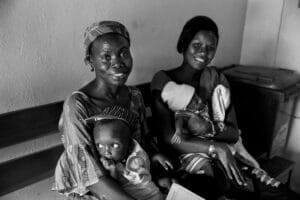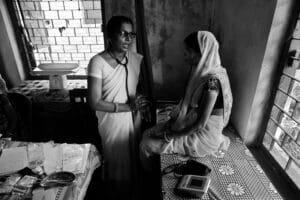Expanding Support for Individuals Experiencing Intimate Partner Violence in Venezuela
HIGHLIGHTS
- Intimate partner violence (IPV) is one of the most common forms of violence against women and includes physical, sexual, and emotional abuse and controlling behaviors by an intimate partner.
- ideas42 collaborated with the International Planned Parenthood Federation (IPPF) and Asociación Civil de Planificación Familiar (PLAFAM) in Venezuela to increase access to psychological services for women who have been affected by IPV.
- Evidence suggests our solutions are feasible to incorporate into existing clinic operations and demonstrate promise in supporting women to access mental health services when experiencing violence.
The Challenge
Intimate partner violence (IPV) is one of the most common forms of violence against women and includes physical, sexual, and emotional abuse and controlling behaviors by an intimate partner. IPV occurs in all settings and among all socioeconomic, religious, and cultural groups. The overwhelming global burden of IPV is borne by women, and the most common perpetrators of violence against women are male intimate partners or ex-partners.
In Venezuela, the International Planned Parenthood Federation (IPPF) and Asociación Civil de Planificación Familiar (PLAFAM) provide access to psychological services for women affected by IPV. Yet a strikingly low proportion of women were actually utilizing these services—40% of first-time patients disclosed IPV at PLAFAM but only 3% of women utilized the psychological services offered. ideas42 partnered with IPPF and PLAFAM to design and evaluate an intervention that works with both patients and providers to increase the number of women who accept and follow through on referrals to psychological services after disclosing a situation of IPV at a PLAFAM clinic.
Our Approach
To understand low uptake of psychological services offered to women who experience IPV at PLAFAM, we conducted an extensive analysis of the service referral processes at PLAFAM, conducted qualitative interviews with women and health providers, and reviewed clinic datasets. We found that even when free, women who experience IPV underutilize available psychological services for various reasons, including stigma, lack of social proof of other women utilizing services, and hassles within the referral process. To increase uptake of psychological services, we redesigned the way that patients and providers interact in the clinic. Our solution had three components:
- Testimonial Videos: The testimonial videos placed in the clinic waiting room aimed to shift perceived norms around who uses mental health services by depicting womens’ experiences with IPV and how they sought help.
- Referral & Motivation Cards: The referral and motivation cards prompted action and encouragement for the provider to refer women who experience IPV to psychological services with clear next steps. Women are defaulted into an appointment slot at a time when they are available, and the card mimics that of other specialized medical services.
- Reminder Phone Calls: The reminder phone calls placed for upcoming appointments reduced the hassle of women having to remember appointments while ensuring a woman’s safety and privacy related to the purpose of the call.
Results
The political situation in Venezuela at the time prevented our team from evaluating our solution via a rigorous randomized controlled trial. Nevertheless, preliminary qualitative evidence obtained from client and provider surveys suggests that clients found the testimonial videos helpful in positively shifting their perceptions around talking openly about one’s problems. Providers found the referral process easy to implement and that clients were also comfortable with the process, and secretaries found the reminder calls easy to implement. Given these preliminary findings, we recommend finding opportunities to further adapt and test this solution package in other settings.
Takeaway
Given that IPV is one of the most common forms of violence against women, finding effective tools to support women when experiencing these situations is crucial. Evidence from implementation of the behavioral solutions suggests their feasibility to incorporate into existing clinic operations and their promise in supporting women to seek mental health support by elevating acceptability and perceived importance of this care and eliminating hassles in accessing these services.
Interested in our work applying behavioral science to global health? Email gh@ideas42.org or tweet at @ideas42 to join the conversation.
Partners










